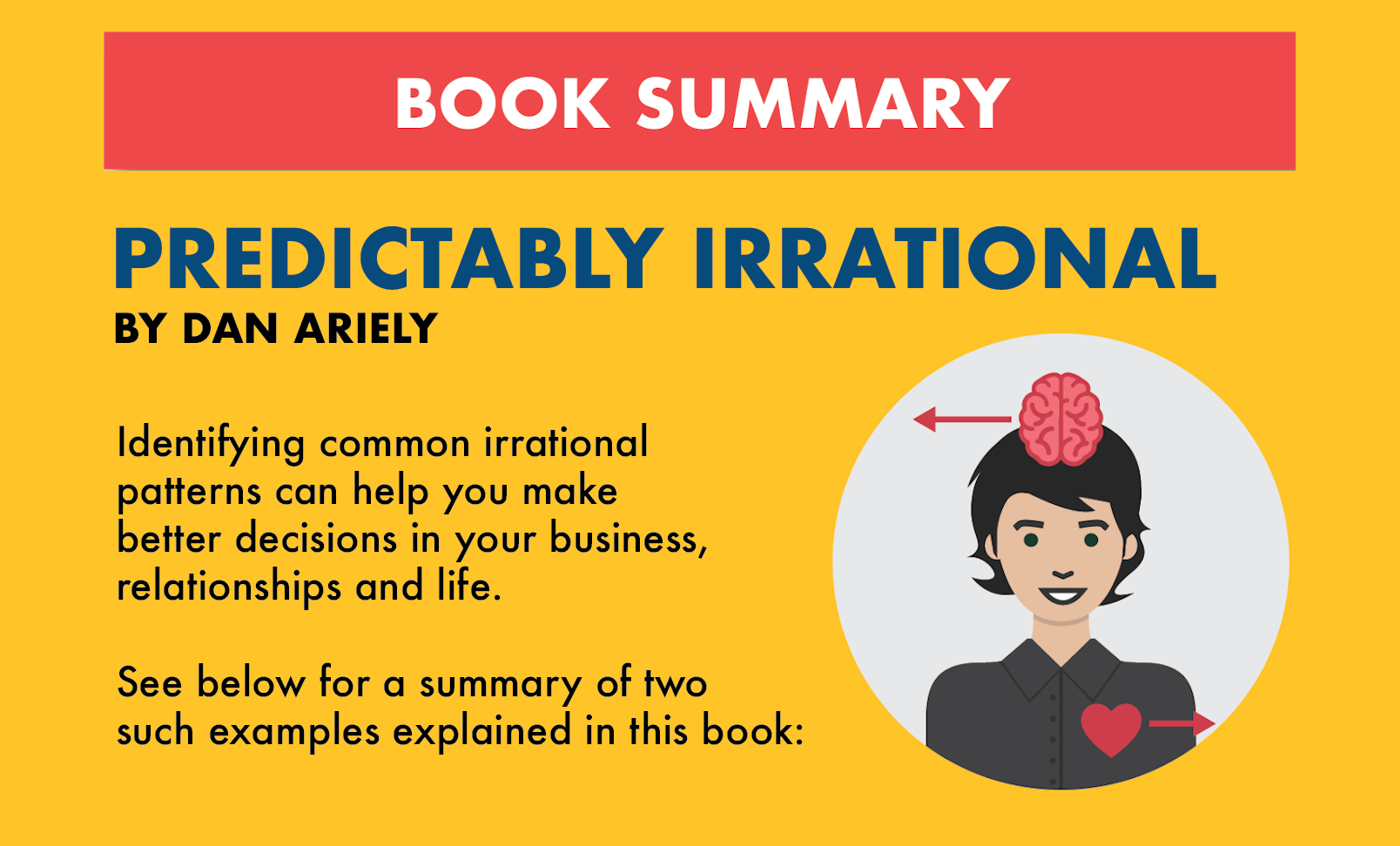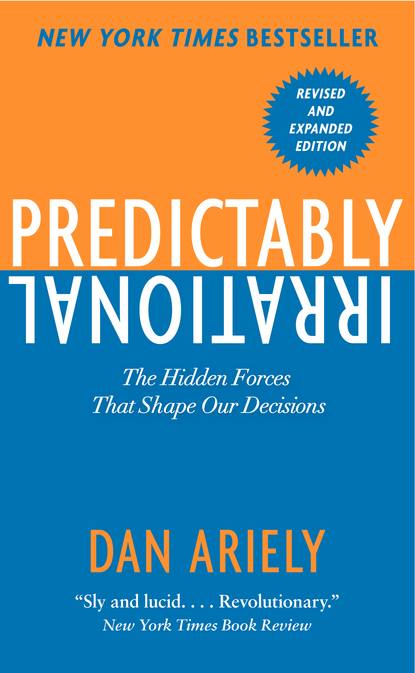

In a series of illuminating, often surprising experiments, MIT behavioral economist Dan Ariely refutes the common assumption that we behave in fundamentally rational ways. We think we're making smart, rational choices. When it comes to making decisions in our lives, we think we're in control. Why do we go back for second helpings at the unlimited buffet, even when our stomachs are already full?Īnd how did we ever start spending $4.15 on a cup of coffee when, just a few years ago, we used to pay less than a dollar? Why do we splurge on a lavish meal but cut coupons to save twenty-five cents on a can of soup? Why does recalling the Ten Commandments reduce our tendency to lie, even when we couldn't possibly be caught? In light of our current economic crisis, the consequences of these systematic and predictable mistakes have never been clearer.Packed with new studies and thought-provoking responses to readers' questions and comments, this revised and expanded edition of Predictably Irrational will change the way we interact with the world-from the small decisions we make in our own lives to the individual and collective choices that shape our economy.Why do our headaches persist after taking a one-cent aspirin but disappear when we take a 50-cent aspirin? The mistakes that we make as individuals and institutions are not random, and they can aggregate in the market-with devastating results. As he explains, our reliance on standard economic theory to design personal, national, and global policies may, in fact, be dangerous. Bringing a much-needed dose of sophisticated psychological study to the realm of public policy, Ariely offers his own insights into the irrationalities of everyday life, the decisions that led us to the financial meltdown of 2008, and the general ways we get ourselves into trouble.Blending common experiences and clever experiments with groundbreaking analysis, Ariely demonstrates how expectations, emotions, social norms, and other invisible, seemingly illogical forces skew our reasoning abilities.

How do we think about money?What caused bankers to lose sight of the economy?What caused individuals to take on mortgages that were not within their means?What irrational forces guided our decisions?And how can we recover from an economic crisis? In this revised and expanded edition of the New York Times and Wall Street Journal bestseller Predictably Irrational, Duke University's behavioral economist Dan Ariely explores the hidden forces that shape our decisions, including some of the causes responsible for the current economic crisis.


 0 kommentar(er)
0 kommentar(er)
